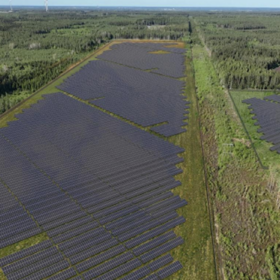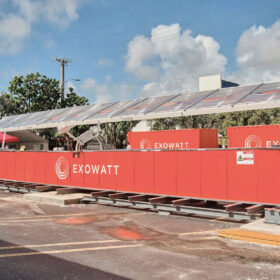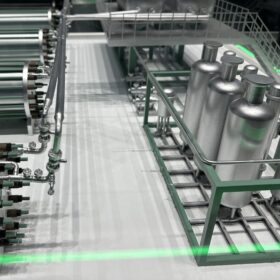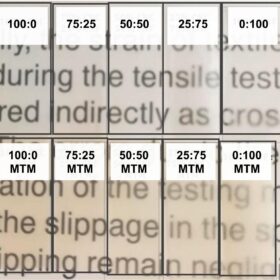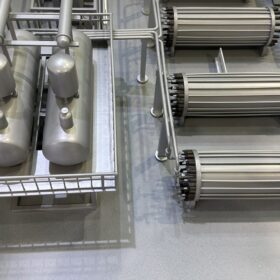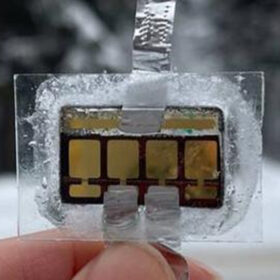Using laser processed glass as solar concentrators for BIPV
Researchers from Aalto University in Finland demonstrated a proof-of-concept of laser-processed glass to be used as a type of solar concentrator for building integrated PV (BIPV) applications. The treated glass enabled a 55-fold increase in photocurrent generation compared to unprocessed glass, with an estimated optical efficiency of 0.66 %. Additionally, a fluoropolymer coating was applied to create a self-cleaning surface.
Alight, Autoliv sign Finland’s largest PPA to date
Swedish solar developer Alight has signed a 100 MW power purchase agreement (PPA) with Autoliv for Finland’s largest PPA to date. The solar park, set for construction in Eurajoki, will be operational by 2026.
Powering the AI revolution
Developers from the renewable energy and data center markets are working to find common ground to meet surging energy demand fueled by the artificial intelligence boom.
Heat pump control strategy for energy communities
Researchers have utilized measured data from a small energy community on a Finnish university campus to simulate its operation under various control strategies. The first control strategy prioritizes the use of heat pumps, while the second prioritizes price. Total costs were reduced by up to 25% with the second option.
The Hydrogen Stream: Plug Power records surge in electrolyzer revenue
Plug Power reported an almost 6-fold increase in electrolyzer revenues in 2024, despite the financial troubles. Meanwhile, Finland’s first large-scale plant goes into operation.
Finland’s solar additions fall to around 200 MW in 2024
The Finnish Solar Energy Association estimates that solar additions fell in 2024 compared to 2023, but utility-scale projects under construction are set to accelerate deployment in the coming years.
Carbon dioxide removal portfolios enable reaching ambitious climate targets
In a new monthly column for pv magazine, the LUT University describes how carbon dioxide removal may support reaching climate targets from a portfolio perspective.
Researchers develop high transparency nanocellulose film for photovoltaics, packaging
The nanocellulose film can be used for light management as its light scattering is adjustable. It also exhibits a transmittance of over 80% at 550 nm.
The Hydrogen Stream: EU offers financial support for renewable H2 auction
The European Commission, Austria, Lithuania, and Spain have announced new financial support measures for renewable hydrogen development as the European Union prepares for the second European Hydrogen Bank auction.
New encapsulation method boosts perovskite solar cell efficiency by 8%
Scientists at Aalto University in Finland have demonstrated a one-step encapsulant method for perovskite solar cells that provides shielding from oxygen and moisture-induced degradation and a significant relative improvement in efficiency.

